Blog of Evelyne Para, UN SI Representative at UNESCO, Paris.
“Reshaping ideas and practices in the education of the future graduates to ensure a sustainable future for our planet and humanity, such was the objective of two conferences organised by UNESCO in which I took part in May 2022.
With the main themes: “Reinventing higher education” and “Science, Technology, Innovation and Entrepreneurship in support of the SDGs”, these two meetings provided an opportunity to discuss online with several stakeholders on various issues relating to education. What knowledge, skills, competencies and values will young people need to attain in order to work, become global citizens and live in dignity? Who will guide these changes: institutional leaders, policymakers, researchers, students, professors, employers, community leaders, civil society groups? How to get young women interested in technologies of the future?
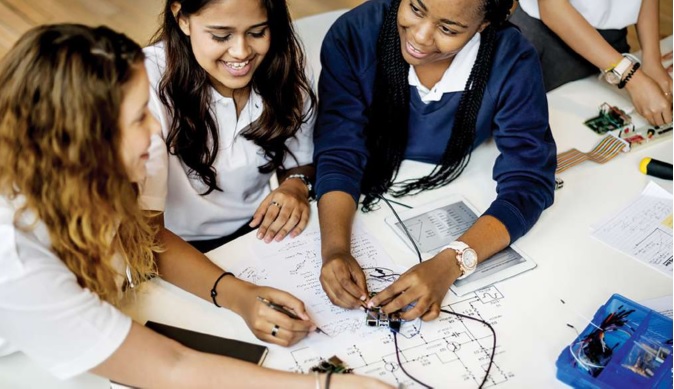
Image courtesy of UNESCO
As an introduction to the World Conference on Higher Education (WHEC2022), held in Barcelona from 18 to 20 May 2022, the panelists recalled the various factors having a direct impact on the current transformation of higher education systems: technological developments and digital revolution, new ways of working, creation of new jobs and destruction of others, globalisation of economies, mass consumption, increasing mobility and migration, societal and environmental challenges…
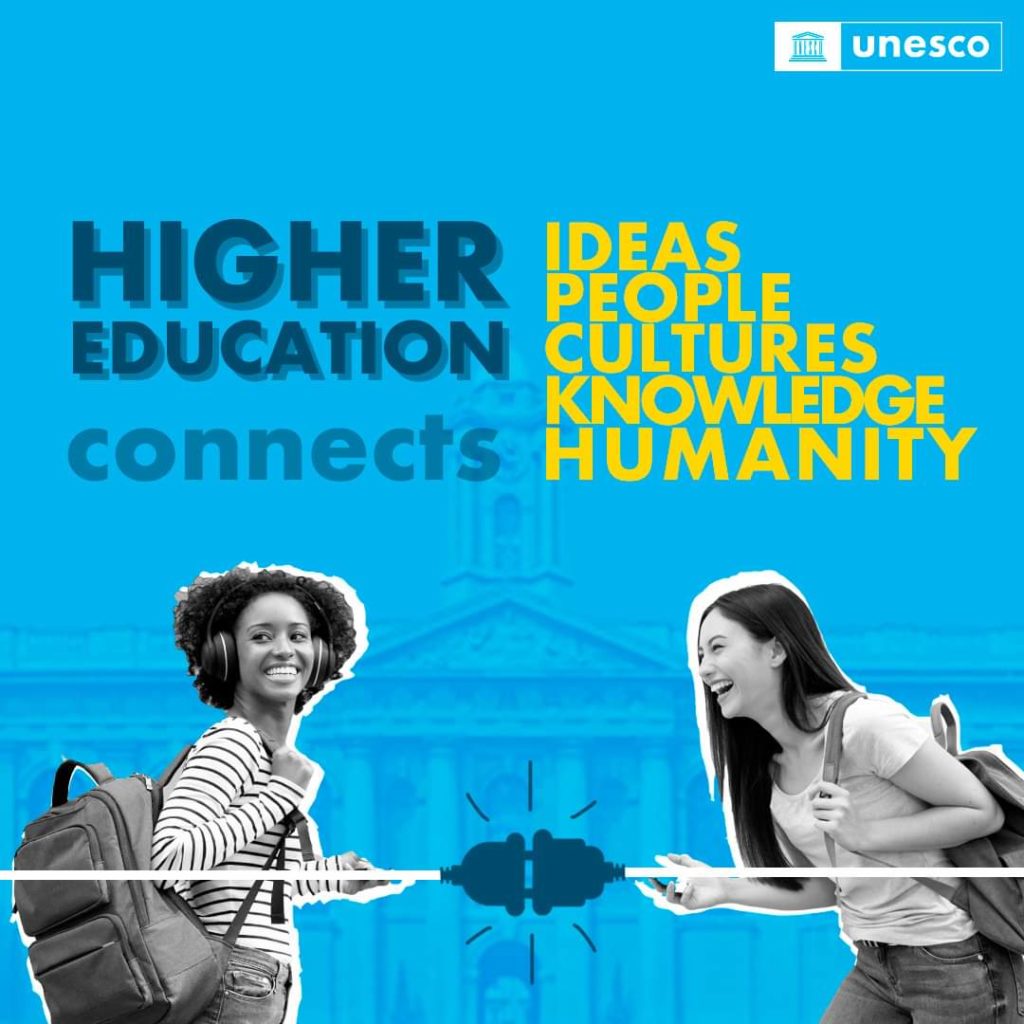
Image courtesy of UNESCO
More than ever, our societies need highly qualified and competent workers. Good news: higher education enrolment rates and student mobility have increased in all regions of the world. Today, of the 220 million students worldwide, 5.3 million are studying abroad, compared to 2 million in 2000. We can also welcome the transition of universities towards a global campus of learners, of teachers and researchers. Nevertheless, huge disparities remain.
During this conference, UNESCO presented its roadmap for the next decade which emphasises that higher education must be a fundamental right in motion with the aim of “leaving no one behind”, with inclusion and shared prosperity as an overarching global aspiration. First of all, the Global Convention on the Recognition of Qualifications relating to Higher Education adopted in 2020 by the 40th session of the General Conference of UNESCO, has established universal principles for fair, transparent and non-discriminatory recognition of higher education qualifications. Today, it’s a reality for millions of people around the world, including refugees.
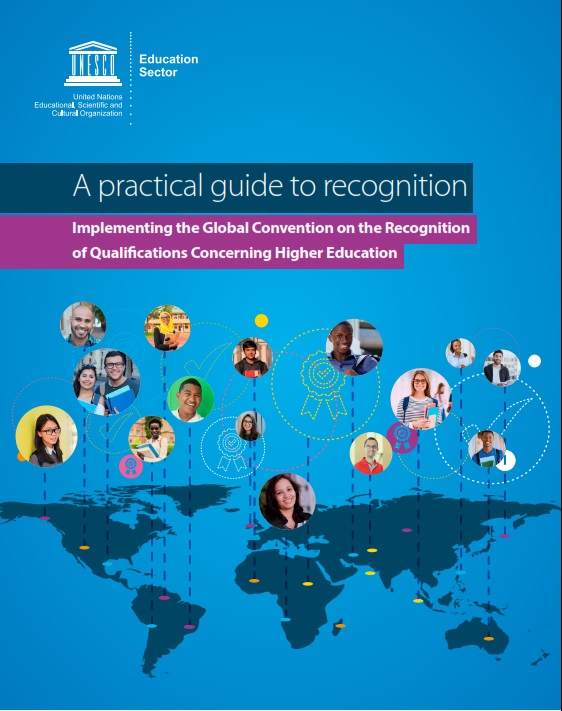
Image courtesy of UNESCO
On the other hand, the UNESCO UNITWIN/Chairs Program brings together more than 850 institutions from 117 countries, thus encouraging cooperation and the creation of networks between universities at international level to build institutional capacity through knowledge sharing and collaboration.
UNESCO has also launched the Futures of Education, a major global initiative to reinvent knowledge and learning for all by fostering international cooperation in an increasingly complex, uncertain and precarious world.
Finally, during this Barcelona conference, several testimonies and reflections brought together academics, members of civil society, local communities, researchers and political leaders. Through an interactive platform, young people from all over the world also had the opportunity to express their opinions, feelings, aspirations and commitment facing challenges and prospects of higher education.
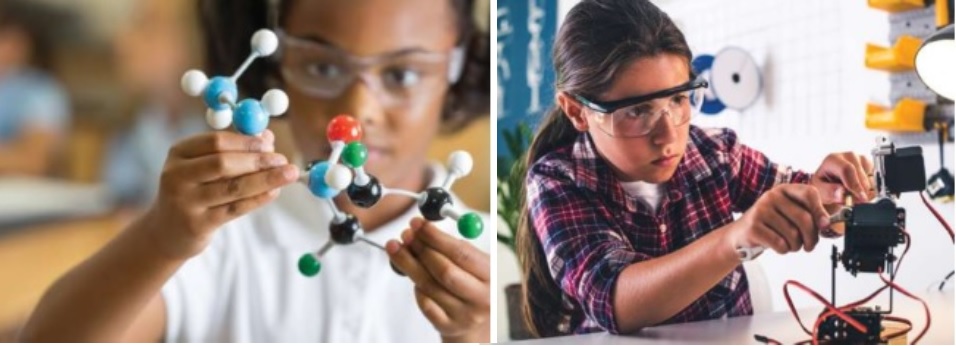
Image courtesy of UNESCO
On 24 May 2022, many NGOs attended in a Webinar on Science, Technology, Innovation, and Entrepreneurship in support of the SDG’s, organised by the NGO-UNESCO Liaison Committee. The various speakers underlined the vital importance of science, technology and innovation in response to the challenges facing humanity, such as pandemics, global warming, loss of biodiversity, water stress and the persistence of poverty in some countries, particularly in Africa.
This meeting focused on entrepreneurship as a source of women’s empowerment and economic growth opportunities, but also on the difficulties of access of young women to universities and professional technical schools. Too many girls are still held back by discrimination, prejudice, stereotypes and social norms that influence the quality of education they receive and the subject choices they study. Despite significant improvements in recent decades, the underrepresentation of girls in Science, Technology, Engineering, and Mathematics (STEM) education is deeply rooted and holds back progress towards sustainable development.
The works coordinated by UNESCO help us to get what causes this situation in order to reverse these trends. The publication “Cracking the code”offers a world-wide chart of this under-representation, the factors that determine it and suggests examples of ways in order to improve interest, engagement and achievement of girls in STEM.
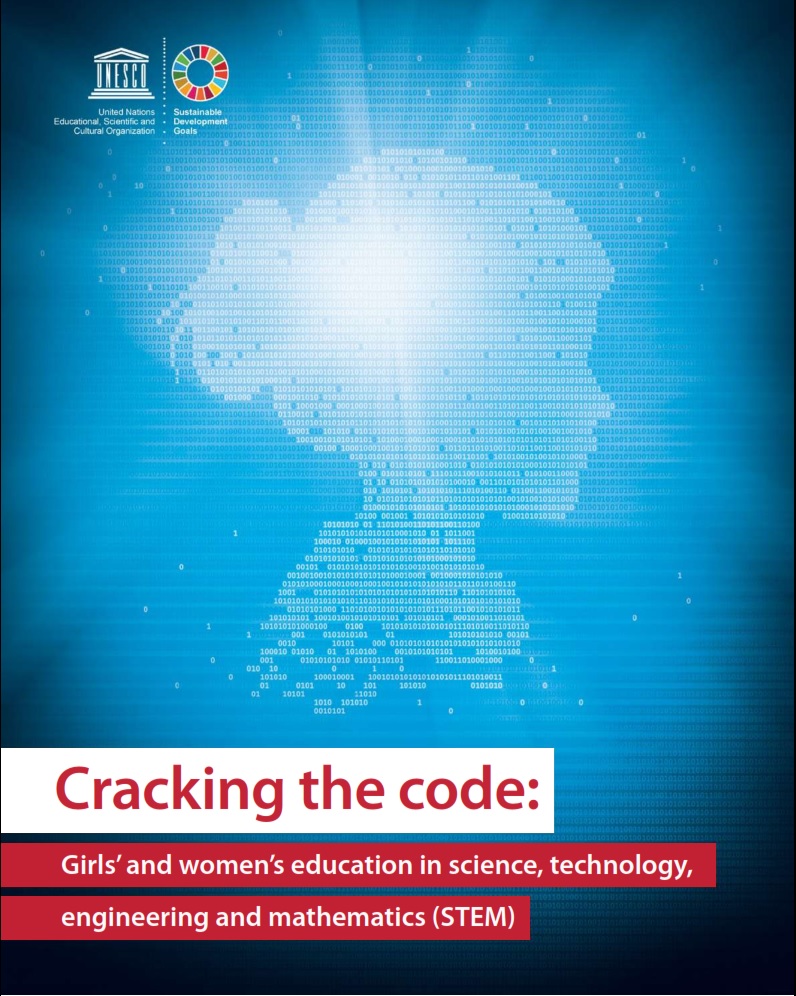
Image Courtesy of UNESCO
These factors include social, cultural and gender norms that influence how girls and boys are raised, learn and interact with their parents, family, friends, teachers and the wider community, and shape their identity, their beliefs, their behaviour and their choices. Girls are often induced to believe that STEM is a “masculine” subject and that female abilities in this area are inherently inferior to those of men. This can undermine girls’ self-confidence, interest and inclination to study STEM subjects.
Supportive learning environments can increase girls’ self-confidence and self-efficacy in STEM. Real-world learning opportunities such as extracurricular activities, field trips and work experience placement can help engage and retain girls’ interest. Mentoring appears to be particularly beneficial for girls, increasing their self-confidence and motivation and improving their understanding of STEM careers.
During this Webinar, various field actions carried out on the African continent by NGOs were highlighted. For example, the Women In Tech project, which has created skills among girls and women and reduced inequalities in Benin, or the SOAR empowerment program for marginalised adolescent girls in Morocco, or even various training in water technologies on the African continent.”
Recommended Reading
- What is the UNESCO Global Convention on higher education?
- UNESCO practical guide to recognition of qualifications concerning higher education
- UNESCO qualifications passport for refugees and vulnerable migrants
- UNESCO reimagining our futures together: a new social contract for education
- STEM education for girls and women: breaking barriers and exploring gender inequality in Asia
- Boosting gender equality in science and technology

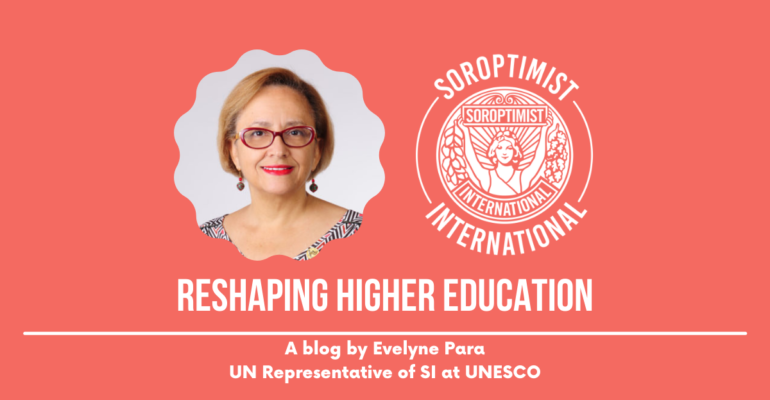
You’ve written it so nicely, and you’ve come up with some great ideas. This is a fantastic post!